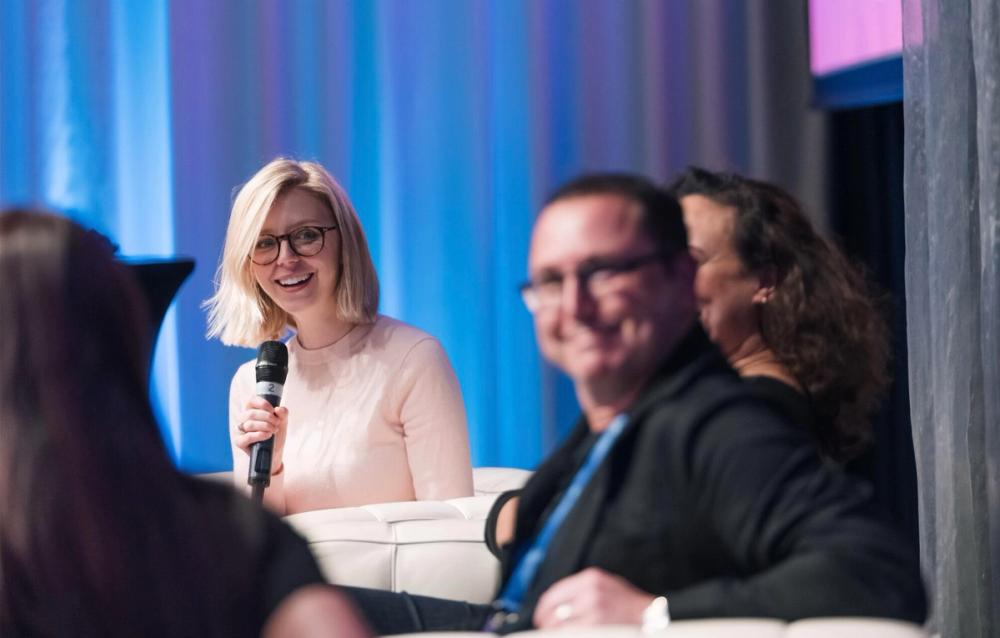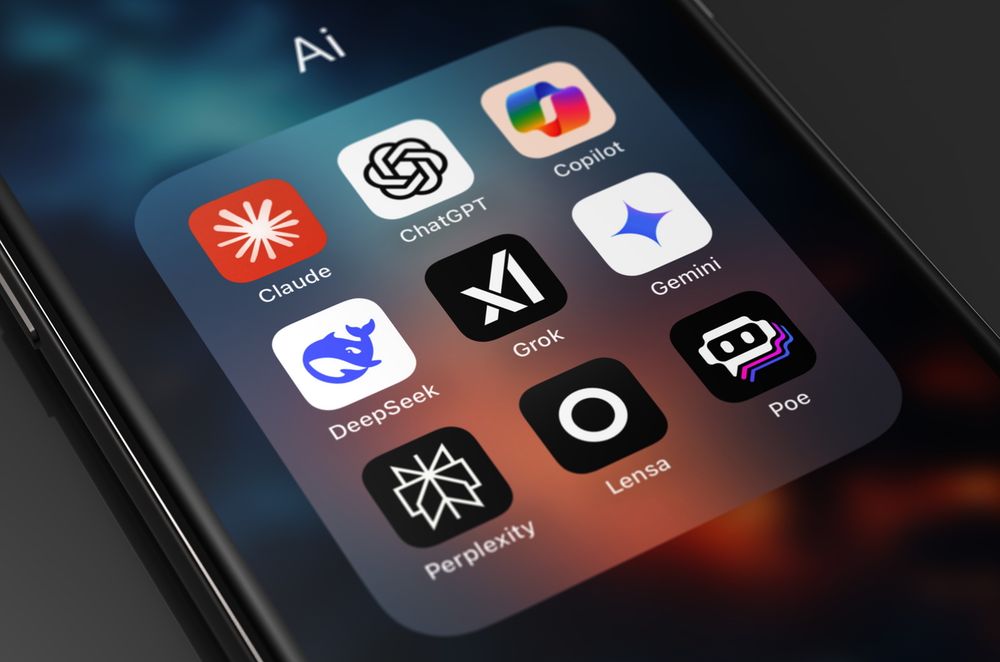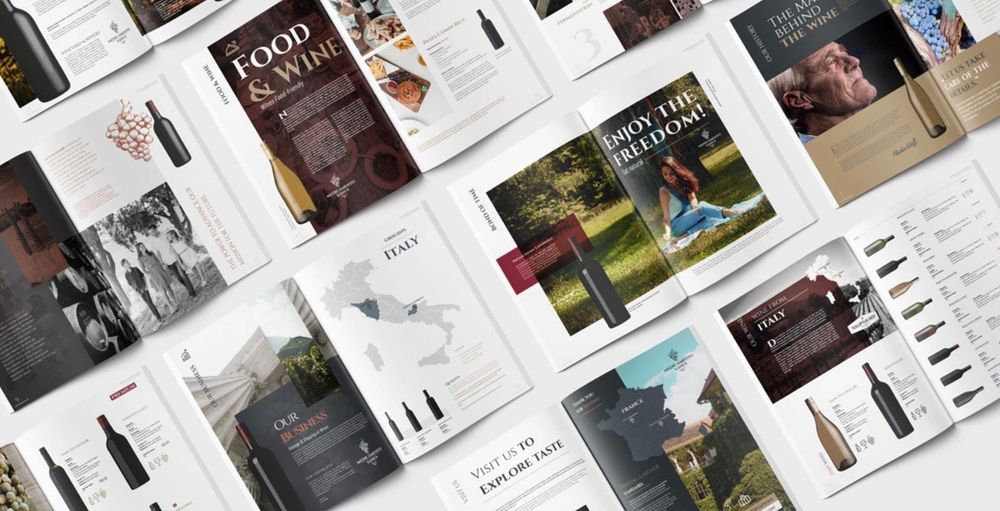It is quite the leap to move from making and selling boxed wine to running an AI consultancy business? Have you always had an interest in technology?
I would say I have always had a passing interest in technology. But when ChatGPT first came into everybody's lives in 2023 I was immediately obsessed.
I remember first using ChatGPT when I was in South Africa, and I asked it to help me plan a winery tour in Stellenbosch. It immediately captured my attention for what it had the potential to do for businesses and the way we work, particularly for non-technical businesses as it’s so accessible. What could be easier than simply ‘chatting’ with cutting edge technology?
So, it was a no-brainer what I should do next!
That idea has now turned into Artanis. What is it you are looking to do and who are the people you are working with?
I started doing some freelance consulting helping people figure out where within their business AI could be a good fit, as well as doing some team training sessions.
I was speaking with the Artanis team to help me with the technical builds for some of these projects, then in February they asked if I wanted to come on board as COO and it was too good to turn down.

Laura Rosenberger says AI can help businesses be more efficient and focused on where they need to be investing their time and money
What do you think businesses need to be doing to take AI seriously?
It's a bit of a tricky one because it's very easy with AI to build something rough and ready. I have no coding experience yet I can build a functioning AI tool or app using AI-powered coding tools, which is amazing. It opens up technology to so many more people.
However, when you do things that way, it's quite hard to get the level of reliability you need for it to become a core part of your business. Rough-and-ready sometimes isn’t good enough if you’re putting it in front of customers or you want to trust it to run an important process for you!
Everyone on the team here either has an AI PhD or has run a business before (and in most cases, both!). They are the absolute experts in terms of building reliable AI as well as understanding how it fits within a business, which is really unique.

The key for using AI effectively is to determine which parts of a business' day-to-day operations it can help with, says Laura Rosenberger
What sort of projects or business sectors are you looking to work with?
We’re looking across all industries, and the types of projects we do fall into two buckets.
One is Product AI which is where someone has a customer facing product which uses AI, such as a chatbot.
Then there's Operational AI, which is using AI within your business processes and workflows.
Any examples?
We’re currently working with a business to automate the generation of their reports with AI (what used to take 6 weeks now takes seconds!) We’re also building an AI study tutor, and helping a business with creating secure, bespoke call recording tools.
Some businesses come to us with a very specific problem and they'll say, we have tried building it ourselves and it doesn't work well enough and can you help?
Then there's another group of people who might have identified a number of potential opportunities and they want us to help them figure out where they should start as well as building it for them.
I also speak with people who feel under pressure to start using AI, whether that's from their investors or a chief executive, but they genuinely have no idea what to do.
If someone does come to you with very little idea of how AI can help them what steps do you go through with them to determine where the opportunities might be?

AI in the drinks industry could be transformative in how it handles data, and manages processes
AI should be used to actually add value or do something useful, and not just be a shiny toy.
I think the way to achieve this is before you even start thinking about AI… it’s about really understanding the underlying business, so this is best placed in the company’s hands rather than us as a consultancy. We are able to give people guidance to help them find the processes which are very time consuming, very expensive, or that people hate doing and would love to have it automated. But this information needs to come from you, the business experts!
We then overlay that with which of these processes are a good fit for AI to help people get high impact, quick wins.
I think sometimes people imagine AI is this magical thing that can do everything. It's not. There are some opportunities that are more suited to it than not, and you need to be super specific about what you’re asking it to do.
We might actually say we don't think AI is the right fit for projects we’re approached about. Sometimes what people need is just more traditional software, and because AI is so hyped at the moment, there’s a risk that people over-engineer and try to crowbar AI into everything.
What existing AI platforms are you working with?

AI apps are already being widely used by consumers and businesses. Picture iStock. Credit Lixu
We work with all the types of models you’ve likely heard of, such as OpenAI (which powers ChatGPT) or Anthropic (who have created Claude). We then build on top of those models, to create something bespoke to your specific use case, embedding your expertise knowledge, and plugging into your existing systems and ways of working.
Have you been approached by anyone in the wine or drinksindustry yet?
I haven't done any drinks projects with Artanis yet, but when I was freelancing last year, I spoke with several wine businesses so there's definitely an openness to it.
The types of projects people were interested in were using it to shorten customer service response times by drafting emails (to still be checked by a human before sending), or writing product descriptions. If you’ve got a huge product catalogue and you’re literally writing up information from a spreadsheet into paragraphs, AI can hugely speed this up.
Anywhere where you’re writing text is a project that GenAI could be a good fit for.
Often when you talk about AI for the drinks business, people’s minds go to flavour creation or product recommendations, but I think it’s actually way more powerful for the less sexy stuff like the back office tasks.

AI can help in automating tasting notes and details on all the 1000s of drinks that drinks companies have
What are your plans for the business now and going to the next stage?
Our focus is helping businesses build AI they can trust, and a big part of my job is finding those businesses!
We’re learning a lot about what companies need help on and how we can best deliver that help.
The more you are able to show people what you have done is the best way of illustrating that?
Artanis has built AI projects for over 20 businesses in the last year and one of the jobs on my to do list is to write those up as proper case studies which we can share.
Any advice for companies on what they could be doing now to prepare themselves for implementing AI?
People often think that because they are gathering lots of data, it’ll be useful for AI one day. But when you dig a little bit deeper, you find that the data maybe isn't as high quality as you think. For example, it could be full of contradictions based on how different people were inputting the data.
As soon as there's ambiguity in the data then there is a problem. AI is very literal and it just doesn't know what to do. So there is often a big exercise to try and clean up the data first before it can be used.
We have to start thinking about data in a slightly different way when AI is ingesting it rather than humans. That's where having AI or data science expertise to call upon is really helpful!
What advice would you give to companies looking at AI?
My advice would be to try and get people on the team to start using AI as much as possible to see where it works best and where it doesn't work. The more you use it, the more confident you’ll get and you’ll find new ideas for what it could be used for.
A good challenge is to try and include it in every task you are doing throughout the day. Like writing up your meeting notes or asking for feedback on an important email before you send it. You could upload your business strategy and ask it to act like your coach. What could I be doing differently? What am I not looking to do? What am I not seeing?
We now all know that AI isn’t going away, so just start experimenting and go from there. And if you want to bounce around ideas, I’m happiest when geeking out about AI so feel free to reach out to me.
* If you want to find out how AI can help your business then go to Artanis' website here. You can also contact Laura Rosenberger on Laura@artanis.ai.
































